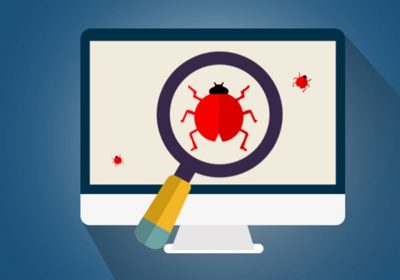Exploratory testing is an approach to software testing without any specific plans. It focuses more on how the software actually works by which tester gets an insight about the software functionality. This approach to software assessment integrates learning about the program with conducting the testing processes.
[leaderad]
Exploratory Testing emphasizes on personal responsibility of the individual tester. In this type of testing, test cases are not created in advance. The determination of test cases is done during testing and the emphasis is on adaptability and learning. The process is all about improvement of test design. An interesting feature of exploratory testing is that it is not random testing but is an adhoc testing that is done with the purpose of finding bugs.

Let’s look at the pros and cons of exploratory testing:
Pros
- Requires less preparation
Exploratory testing involves less preparation as compared to scripted testing. Important bugs are found quickly and the approach is intellectually stimulating. As it involves Investigation process, it helps to find more bugs as compared to normal testing. - Find bugs
This type of testing helps to uncover bugs that are normally ignored when we follow other testing techniques. Most bugs are discovered by exploratory testing. - Covers all types of testing
Exploratory testing drills down to the smallest part of the application and covers all types of testing. Testers do not have to run a complete series of scripted tests to explore a more target rich environment. - Saves time
In exploratory testing, all tasks are done simultaneously such as testing, designing test scenarios, executing test scenarios and more. This results in saving time and reporting of more issues.
Cons
- Dependency on tester skills
This type of testing solely depends on the tester skills. If the tester is not competent enough, the testing may not result in finding bugs. - Not suitable for long execution time
Exploratory testing is not considered as the right choice of testing when it comes to long execution time. - Not suitable when repeating is required
Exploratory test ideas when revisited are unlikely to be performed in same manner. When it is more important to repeat specific details of the earlier tests, this type of testing is not suitable.
When should you use exploratory testing?
It can be used when:
- Testing team involved experienced and skilled testers
- You need to provide rapid feedback on a feature
- You want to find the most important bug in short time
- There is a critical application
- You want to investigate status of a particular risk
- Improving existing tests
Conclusion
You can use any testing technique in an exploratory way. It is performed by tester with the purpose to overcome the limitations of scripted testing. This type of testing emphasizes on learning and adaptability of testers. It is most suitable in cases when the requirements are incomplete and the time is less. Undoubtedly, exploratory testing is best performed by skilled and experienced testers.


